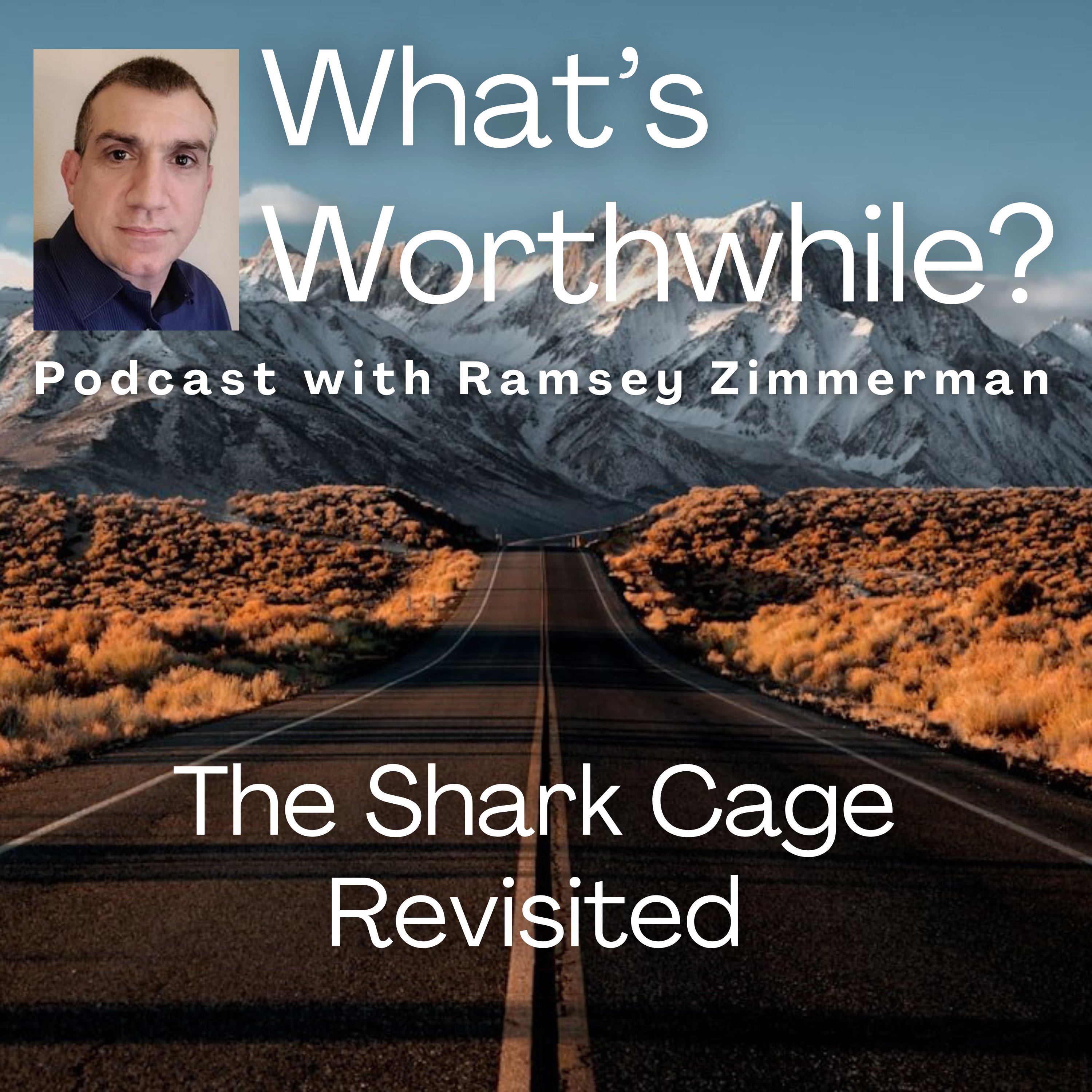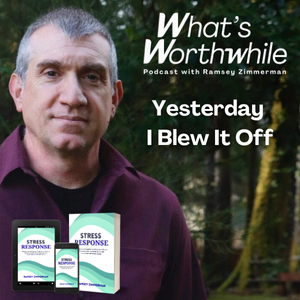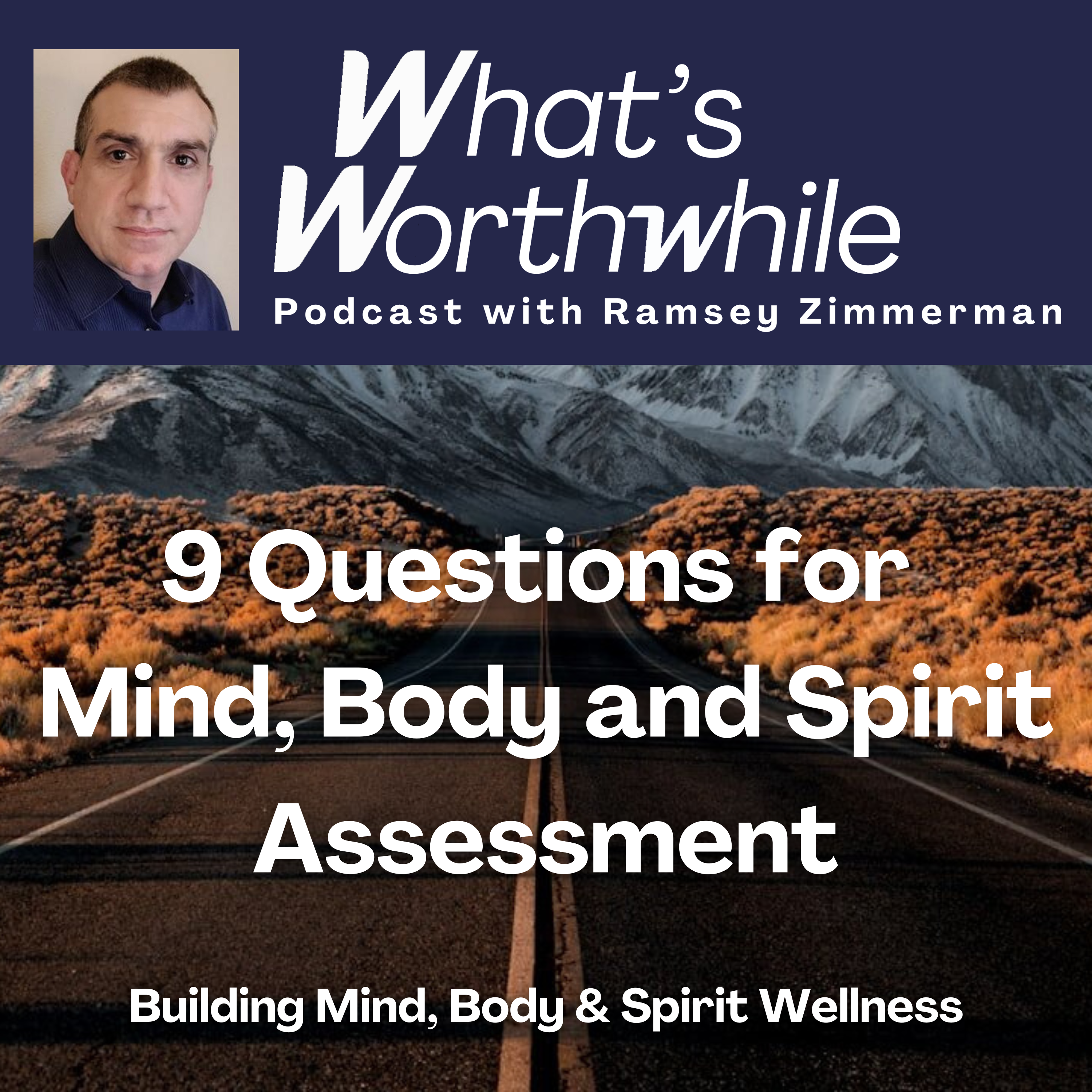[00:00:00] Speaker A: Hey there, it's Ramsay here. This is a deep dive on bridge building. I'm talking about building bridges between individual people and groups of people. I think there's too much division in the world today, so how can we treat each other better? And who in the US is doing good work to turn down the national temperature instead of stoking the fever, fires and fighting? There's a lot to disagree about these days, and everybody's got an opinion that's nothing new. But it seems like people are bickering and fighting about just about everything. Family members don't agree about politics or whether to wear a mask inside the house. And suddenly they're not speaking to each other and not allowed to visit their grandkids. Neighbors can't agree whether gasoline at four and a half dollars a gallon is a good thing or a bad thing. So they stake out their positions with yard signs featuring statements like we believe in science. Are they implying that other people don't believe in science? Meanwhile, entire groups of people blame entire other groups of people for their issues and problems. It escalates. Somebody says something dumb on social media and a whole bunch of other people comment and retweet their indignation. It increases in size and scope. Feuds take on national and international momentum. Where do we start? Starts with us. According to their website, Startswith us. Startswith us is a movement to empower millions of Americans just like you. Tired of our culture of contempt and energized to foster critical thinking and constructive communication across our lines of differences, the website is like a DIY self help guide to recognizing and rooting out our own forms of toxic polarization. For example, they have a finding the way out challenge designed to help shape new habits and norms for political tolerance and courageous compassion. They say you should think of it as a boot camp for building a healthier national culture and repairing broken relationships across differences. Startswith us has a great newsletter with tools, tips, exercises, and stories that exemplify what they point out as the three curiosity, compassion, and courageous. Hmm. Different from my three cs. Those were all in my first year of engineering school. But I digress. So we started with ourselves. Clearly, we need to move next to the people around us, our own family and friends. Perhaps time for some living room conversations. According to their website, livingroomconversations.org connects people within communities and across differences through dialogue to build trust and understanding. The organization believes that belonging starts with conversation, and they provide resources and opportunities that allow everyone to feel seen and heard while celebrating the differences that make us unique their website has conversation guides for more than 150 topics that visitors can download. Each conversation guide includes instructions, warm up questions, and serious topic questions. The goal of these 90 minutes facilitated conversations is to build acquaintances and friendships based on getting to know each other better, hearing each other's perspectives, and sharing our own. Ground rules for the conversations include being curious, listening to understand, showing respect, noting both common grounds and differences, being authentic, being purposeful, and sticking to the topic. The website also has case study and video examples of people having these conversations. If you have difficulty in your family or close group of friends on a hot modern topic, odds are that livingroomconversation.org has a guide you can put to use.
[00:03:20] Speaker B: But what if you don't have a.
[00:03:21] Speaker A: Living room or don't have people over at your place who think or talk or act differently from you? No problem then, eh? Yeah, right. Probably still is a problem because those pesky people live nearby or drive around in front of you with annoying bumper stickers or flags or hats and they won't go away. Well, braverangels.org is a place where people are encouraged to self identify as red, those who tend to lean right or blue those who tend to lean left, and they are encouraged to interact with each other and get to know each other and understand what they think and why they think it braver angels holds in person and online debates, where the point is not to bludgeon opponents with rhetorical zingers or even to win, but instead to express beliefs, gain understandings, listen to evidence and perspectives, ask questions, and ultimately deeply grasp all sides of an issue. Whether one holds onto their initial view or changes their mind is up to them. Truly an amazing thing to experience, even though it doesnt produce very juicy highlight reels. Over the past few years, Braver Angels conducted a comprehensive process of collecting input from more than 200 volunteers about what would make elections trustworthy. I recently had a great discussion with two of the volunteer leaders of that effort, Walt McKee and Larry Mays. They told me that it was an eye opening experience to get so much feedback, to negotiate points until they had consensus, and then to compile useful, attainable elements that governments across the nation could make improvements to achieve. The report is organized into seven broad areas of concern, which fair and equal access to voting, verifiable voter identity and eligibility transparency and accountability, redistricting and gerrymandering, confidence in vote counting, safety and security in the elections process and peaceful transfer of power. An executive summary and the full report are available as downloadable PDF's from braverangels.org dot. Let's say that your community is struggling with a specific and difficult issue, and you're going to need some experienced and expert help to facilitate and guide you through it. You may want to call in the group resetting the table according to their website, resettingthetable.org comma, their approach draws from mediation and facilitation expertise to empower participants to connect, listen to and challenge each other, even in the face of volatile disagreement. Resetting the table works closely with their strategic partners to hold input, forums, workshops, town squares, and multivocal education specifically geared to express multiple points of view on the israeli palestinian conflict. Resetting the table's origins were focused on bridging divides in jewish life and draws on jewish wisdom to embrace the secret argument and actively listen to multiple voices. They also have significant training programs for local leaders, including clergy and faith leaders, group facilitators, journalists and entertainers.
These are deep and pervasive issues that we are talking about. They won't always be solved in a living room or across a table. Fortunately, there is a network of organizations across the country working on projects in their local areas, and there are funds investing in those organizations like the Civic Health Project. According to their website, civichealthproject.org comma, America needs bold, scalable solutions to overcome the forces of division. That's why they advance pioneering approaches with massive potential to scale by mobilizing resources across the domains of technology, entertainment, field building and research. Their portfolio includes names like all sides, America talks, bridging differences, the center for Humane Technology, Millennial Action Project, and many more. Another organization has emerged as the backbone of the societal bridge building movement, according to their website, the bridging movement Alignment Council BMAC, convened by the Listen first project, is a community of around 100 top bridging leaders who support each other and lean in together to reach new heights. They have a three layer theory of change, which is strength strengthening field capacity, mobilizing a broad field of sectors and audiences, and shifting societal or social norms at scale. The group does collective fundraising, measuring of impacts, communications and strategizing. Learn more at listen firstproject.org. Dot with all these issues that we disagree on and all these differences, wouldn't it be easier just to not engage? I mean, why not leave it all alone? Especially if people on each side of an issue have a lot to gain or lose or are highly invested. I think that if we don't engage and talk through our differences that things will get worse. Tensions and division will only get stronger and deeper. Nasty looks and mean words might turn into shoving and fighting. I, for one, don't want to see any more burning cities on tv. I want to talk about and work out our differences. Now is a really great time to engage. We've got a major election this year, a pandemic behind us, and who knows, maybe another one on the way. And the country didn't crack in half or anything crazy like that as a result of the solar eclipse. The timing is great, in fact, because the national week of conversation in 2024 is April 15 through 21. You can go to conversation us for a list of events to participate in locally or online. For example, there is a national better together film festival featuring six films that are being shown in venues across the nation. These films are documentary, touching, true life, human examples of people connecting in unexpected ways and places. Maybe people will never see eye to eye on many issues, but we can better understand each other and what is important and needed and missed and desired by the people around us if we stop and listen and respond. And for today, that is enough.
[00:09:12] Speaker B: Thank you for asking. What's worthwhile? Visit whatsworthwhile.net to learn more about me, Ramsey Zimmerman, and please provide your name and email to become a supporter. I'm asking for prayer, advice, feedback and connections. The what's worthwhile podcast is on Spotify, Apple, iHeart and Amazon. You can also
[email protected] thanks.


